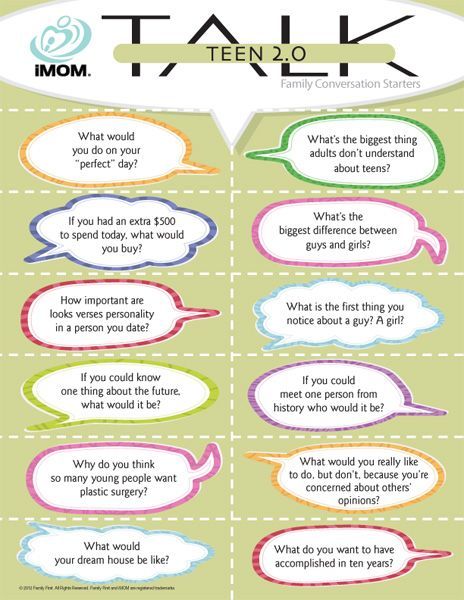Talking with Teens

Attempts to communicate with your teens may feel like an exercise in frustration. Parents complain that no one listens to them, and teens say their parents just don’t understand. Making conversations happen between you and your teen may feel like an uphill battle, but don’t give up. Research shows that our teens care what we think, even if they do not actively show it. Whether you are talking with your teens about serious topics - sexual behavior, substance use - or having casual conversations, there are some common pitfalls that hinder rather than help progress in communicating with teens. In a recent interview with CNN columnist Kelly Wallace, parenting expert Vicki Hoefle indicated that one of the biggest mistakes parents make is talking too much. The American Psychological Association offers these suggestions for establishing effective communication with the teens in your life:
- Be available to your teens. Notice times when your kids are most likely to talk - for example, at bed time, before dinner, in the car - and be available. Find time each week for a one-on-one activity with each child.
- Let them know you are listening. When your children are talking about concerns, stop whatever you are doing and listen. Listen to their point of view, even if it’s difficult to hear.
- Respond in a way that they will hear. Soften strong reactions - kids will tune you out if you appear angry or defensive. Focus on your child’s feelings rather than your own during your conversation.
Also, make sure you understand what your teens may need or want from a conversation, such as advice, just listening, understanding their feelings, or to solve a problem. Resist the urge to solve immediately; that may not be what your teen wants/needs in this moment.
https://www.sno.wednet.edu/site/handlers/filedownload.ashx?moduleinstanceid=3174&dataid=6440&FileName=Talking%20to%20Your%20Teens.pdf


